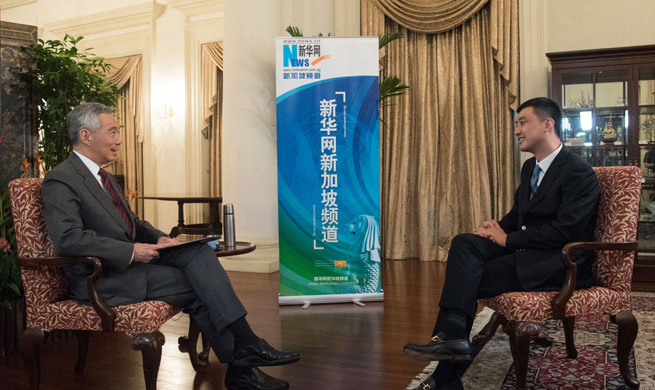BEIJING, Sept. 16 (Xinhua) -- U.S. President Donald Trump has recently blocked a Chinese firm's acquisition of an American semiconductor maker on national security grounds.
The move, which is detrimental to both America's growth and global economic recovery, also runs counter to the mutually-beneficial and win-win nature of China-U.S. relations.
In recent years, Chinese investment in the United States has been growing rapidly, creating a situation where everyone wins as these investments inject vitality into the U.S. market, expand local employment and boosts tax revenues.
Security reviews of investments in sensitive sectors are the legitimate rights of all countries, but that power should not be used as a tool to implement protectionism. A Chinese company acquiring a foreign business is a normal market practice, which should be treated objectively and fairly.
Analysts said the decision was made partly out of consideration for winning over voters in the 2018 midterm election. As a matter of fact, however, such a move is penny wise and pound foolish.
While Chinese firms were accused of costing U.S. jobs during the 2016 presidential campaign, the reality is quite different: Chinese enterprises are opening new factories and hiring people in America.
Chinese-owned firms now employ more than 140,000 Americans nationwide, nine times as many as in 2009, according to the report by the National Committee on U.S.-China Relations and Rhodium Group.
Chinese investment brings fresh impetus to the U.S. economy and helps promote the local manufacturing industry and create more job opportunities, which conforms to voters' expectations. Therefore, imposing restrictions on Chinese investment is not in line with the interests of the U.S. people and unconducive to its economic growth.
As the world's two largest economies, China and the United States shoulder important responsibility to promote global economic development. It is a short-sighted move to take protectionist measures amid sluggish global growth.
Healthy economic and trade ties serve as ballast and engine for China-U.S. relations. Since the Mar-a-Lago summit between Trump and Chinese President Xi Jinping, the 100-day Action plan for economic cooperation between the two countries has achieved tangible results.
While China continues to expand its imports from America, the United States should also take substantial steps on such issues as easing restriction on high-technology exports to civilian end-users in China.
Chinese investment is not "Trojan Horse" with hidden purposes. As far as the China-U.S. economic and trade relations are concerned, strengthened communication and dialogue are not only in the interests of both sides, but also benefit the global economy.
As for this issue, it is in the interests of the United States itself to focus on the bigger picture and have a long-term vision, instead of being preoccupied by immediate interests.
With President Trump set to pay a visit to China later this year, the two countries need to strengthen dialogue and communication, promote cooperation and exchanges in various fields and properly handle issues of common concerns. Only then can China and the United States push forward the world's most important bilateral relationship.

















